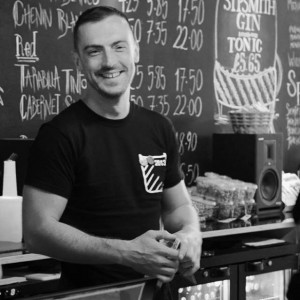National Theatre Connections Festival
Spotlight on: National Theatre Connections
I wrote a piece for the Guardian a couple of years ago about the importance of school plays and it prompted many memories. Whether it was the thrill of being on stage for the first time or the realisation that non-sporty types had found something they were good at, everyone had a strong recollection of their school plays. I distinctly recall the thrill of my first acting experience (being an Oompa Loompa) and then the excitement of graduating to being that narrator in Pinocchio a couple of years later.
Those early experiences were enough for me to know that one day, somehow, I wanted to get more involved in this theatre lark. But back then, beyond a couple of regional drama competitions, there were limited options, let alone opportunities like the National Theatre’s Connections. Connections is the UK’s biggest youth theatre festival, in which ten new plays are developed every year and then performed by schools all over the UK. The festival culminates with a showcase at the National.
Rob Watt, producer of Connections, told me more about how the festival works, the importance of drama to young people, and how he thinks we’re about to hit a tipping point in diversity in theatre. “We start by inviting directors from the schools to come to the NT and give them workshops with a wide variety of skill groups. Each director will meet the writers and lead directors. We condense the new writing experience for them. They then take it away and put their own vision on it. Two hundred and thirty schools are lined up to take part this year and around 50% of this years intake participants are completely new to it. It’s our learning department’s biggest project and it spans every corner of the country.
“The exciting thing that happens is that all the schools get a platform with a regional theatre partner. To go from a school in, say Norwich, to the Playhouse stage as part of a festival is fantastic. You’re getting young people in to watch other young people’s work – they’re all treated as professionals and there is a real festival atmosphere. We do then showcase a selection at the National, though I don’t want that to be seen as the big prize”
It all sounds positive, is every school enthusiastic?
“There can be a lot of fear and ignorance, depending on the topic. This year we have a piece about transgender, in fact it’s actually the most popular play from our selection this year, over fifty groups are doing it. The reason is that children are talking about it, or they know someone that is going through it; it has relevance for them. But fear still exists; we had an Irish play about abortion and one school said they couldn’t do it. Headteachers can sometimes get quite nervous about the language or how political a play can be – though that is a huge generalisation. We do have a huge online community for all the drama teachers and directors to keep the support going throughout the process.”
How would you describe the importance of doing drama at school?
“Its importance transcends ‘doing a play’. In my own personal experiences, there was a part of my brain that kicked in that I was able to use in other parts of my life. It’s the creativity that is key – you can use it to unlock a different way of learning. Also, it’s about building empathy; you put a play on and you step into someone else’s shoes. I worked with people who didn’t get on with school and I watched them change. It builds up that broader skillset, it’s not just about a career in theatre. It’s about being able to look someone in the eye.”
How do you ensure diversity in your youth work?
“The diversity of our Connections writers is a huge consideration; we always have a combination of male and female voices. The plays have got to be good but our diversity is broad, in the past we’ve had pieces from the likes of Lenny Henry, Meera Syal and Sabrina Mahfouz.
“More broadly in theatre, I think we’re on the cusp of diversity shifting, I think we’re going to start seeing that and it’s something that Rufus (Norris, the National’s next Artistic Director) has on his agenda. We’re getting more and more diverse voices coming through. Because we’re working with young people, we’re inspiring and creating role models; we show them videos of our writers, to breakdown that it’s not all older white men.”
Despite that, theatre is still pretty middle class and white…
“I strongly believe that the building should reflect the community. We’ve built four community youth partnerships all in London. We wanted to do something local – for example in Blackfriars we had a partnership that started with us hanging out with the kids – we played pool and then started telling stories. It was only after building a relationship that we took them to the theatre. For most of them it was their first time and their primary concern was ‘are we going to be the only Black kids there?’
“We did a few theatre trips with them and by the time we’d taken them to see ‘Home’ at the Shed, they were able to be more articulate about what they liked. They then went and created their own theatre and showcased it to friends and family on our stage. I know there are at least two or three who could be the next hot writers or actors. They just need to know – for someone to show them – that it is a viable option.”
http://connections.nationaltheatre.org.uk/ Twitter: @ntconnections
Rob Watt on Twitter: @wattnot








Recent Comments